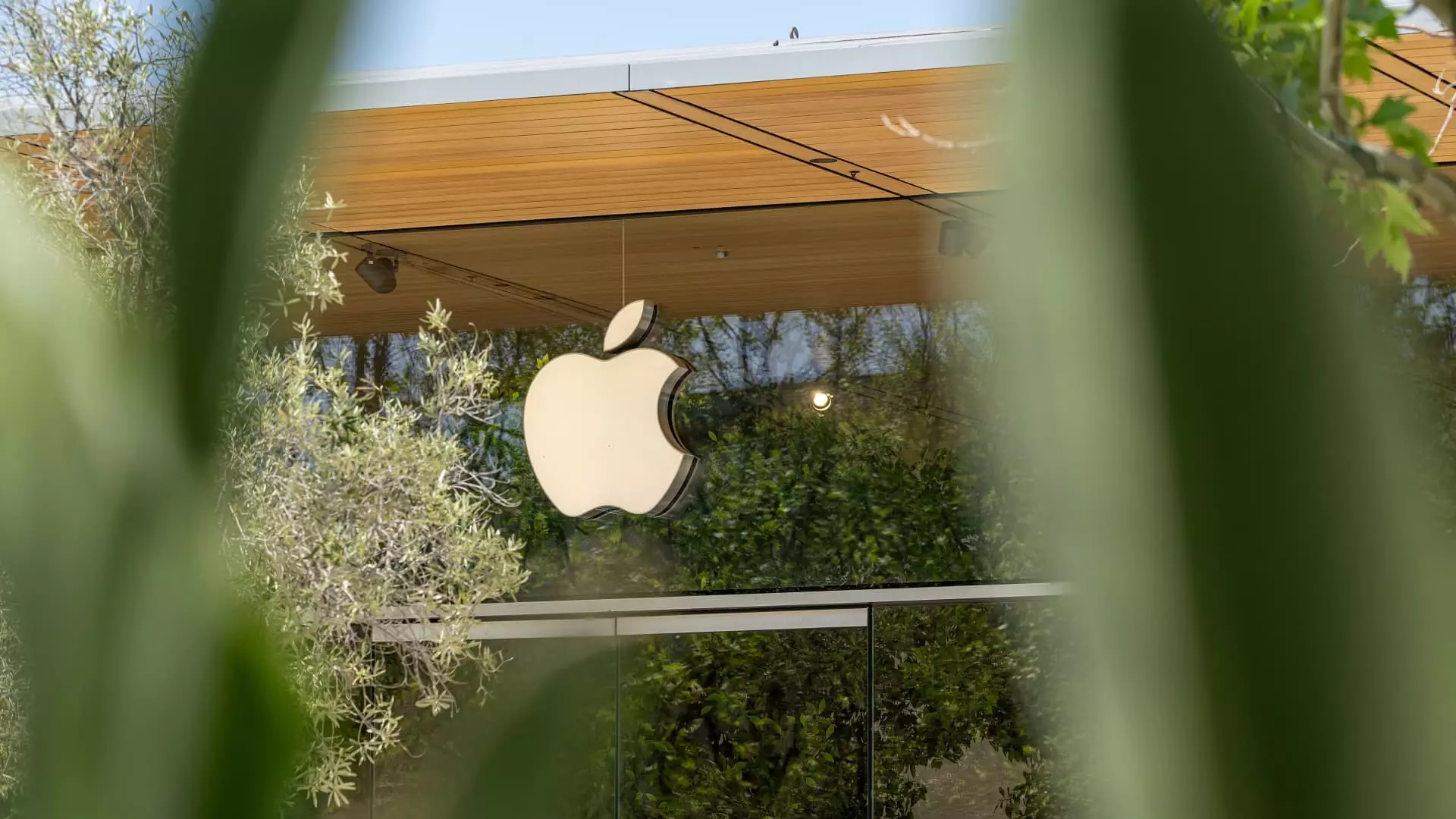In the ever-evolving digital landscape, the clash between tech giants like Apple and ambitious disruptors such as Epic Games reveals a deeper narrative about power, control, and the future of the app economy. Recent developments in their legal spat have thrust Apple back into the courtroom spotlight, with the iPhone manufacturer seeking a pause on a judge’s order that demands significant changes to its in-app purchase policies. This fight is more than just about percentages; it signals a pivotal moment for how digital transactions could be governed in the future.
Last month, U.S. District Judge Yvonne Gonzalez Rogers delivered a substantial ruling that unequivocally indicated Apple’s violation of earlier orders related to its App Store practices. This decision did not merely tweak existing policies; it imposed a structural overhaul, mandating Apple to stop enforcing commission charges on in-app transactions that direct users to external payment methods. The implications are enormous—not just for Apple, but for all developers operating within its ecosystem.
The Economic Stakes
Apple’s emergency motion to delay the enforcement of Judge Rogers’ latest order fundamentally hinges on the financial ramifications of compliance. In its argument, Apple claims that adapting to these new regulations could cost the company “substantial sums”—potentially hundreds of millions to billions of dollars annually. This hyperbolic figure raises the stakes considerably, framing the situation not merely as legal compliance but as a threat to Apple’s financial health.
Moreover, the shift caused by the ruling is already apparent, as some developers—including major players like Amazon and Spotify—have begun to adapt their business strategies accordingly. Subsequent app updates now enable these companies to circumvent Apple’s previously enforced commission fees by directing users to their own payment pathways, which could dramatically alter the economics of app development moving forward.
Challenging the Status Quo
This chaotic skirmish underscores a larger narrative of market dynamics and competition—a narrative that Epic Games has relentlessly championed. Tim Sweeney, CEO of Epic Games, declared the recent judgment as an essential breakthrough, framing it as an opportunity for fair competition within the app ecosystem. His assertion that this ruling “forces Apple to compete” taps into a broader demand for equity and transparency in digital marketplaces. The sense of urgency and necessity behind such claims is palpable; the perception of a gatekeeping monopoly is increasingly untenable.
What makes this case all the more interesting is the judge’s referral regarding potential misleading information presented by Apple during court proceedings. The allegation that a company vice president “outright lied” raises ethical questions about corporate transparency and accountability. Apple has ventured into a precarious territory where legal compliance and corporate ethics have become intertwined, making the stakes not just about profits, but also about reputations.
The Future of App Economics
For app developers, the looming tension between Apple and Epic Games signifies a watershed moment in app economics. The potential shift toward allowing developers to link to their own payment systems could democratize the digital marketplace, enabling smaller players to thrive without the chokehold of exorbitant commissions. However, this transformation invites skepticism: Will it lead to an improved consumer experience, or will it fragment the ecosystem and complicate the purchasing process for users?
As the legal narrative unfolds, Apple’s claim that the ruling harms consumer choice presents an interesting paradox. While Apple argues that changes could lead to confusion and diminished consumer options, critics contend that limiting payment options has perpetuated a monopolistic environment that stifles diversity and innovation. This remains a core argument for advocates of reform in app policies.
In a world increasingly aligned with principles of openness and fairness, the ongoing showdown between tech behemoths serves as a compelling reminder of the clash between innovation and institutional inertia. The outcome of this battle may very well reshape the digital landscape, setting a precedent for how we engage with apps in the years to come. The stakes are high, and as developments continue to unfold in courtroom battles, the entire app economy watches with bated breath.

